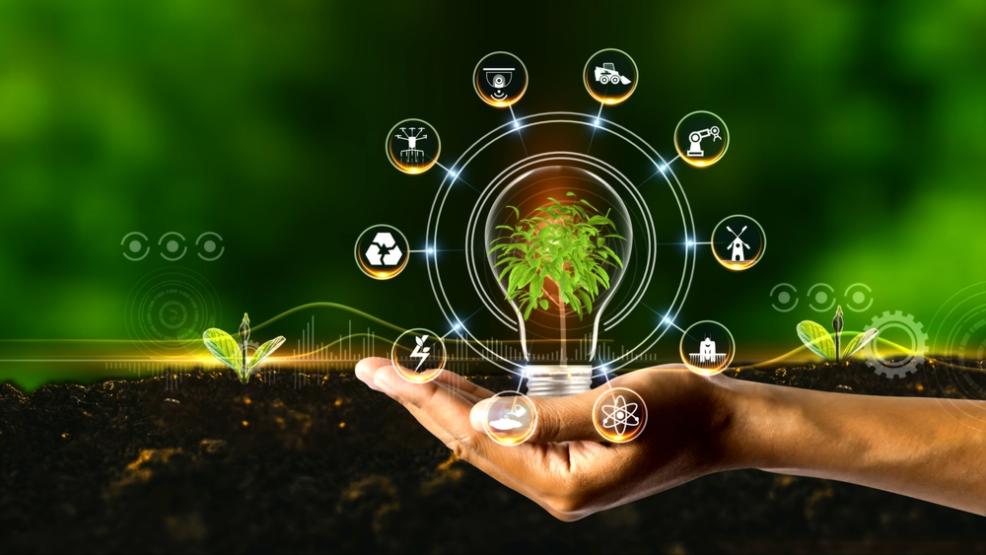AI in Agriculture: Unlocking the Potential for Sustainable and Efficient Farming
As the global population continues to grow, the demand for food is expected to increase significantly. To meet this demand, farmers are facing the challenge of producing more food with fewer resources, while also minimizing their environmental impact. Artificial intelligence (AI) is emerging as a transformative technology that has the potential to revolutionize agriculture and address these challenges.

AI Applications In Agriculture
Crop Monitoring And Analytics:
- AI-powered drones, satellites, and sensors are used for real-time crop monitoring, collecting data on crop health, stress, and yield potential.
- AI algorithms analyze this data to identify areas of concern, such as nutrient deficiencies, pest infestations, or disease outbreaks, allowing farmers to take timely action.
Precision Agriculture:
- AI enables farmers to optimize resource allocation and reduce environmental impact through precision agriculture techniques.
- AI-driven variable rate technology allows farmers to apply inputs, such as fertilizers and pesticides, at precise rates based on the specific needs of different areas of the field, minimizing waste and environmental impact.
Pest And Disease Management:
- AI-based image recognition and machine learning algorithms are used for early detection of pests and diseases, enabling farmers to take proactive measures to prevent outbreaks.
- AI algorithms can also predict pest outbreaks and optimize treatment strategies, reducing the use of pesticides and minimizing the impact on beneficial insects.
Livestock Management:
- AI applications are used to monitor animal health, behavior, and productivity, providing farmers with valuable insights into their livestock.
- AI-powered systems can optimize feed rations, reduce disease risk, and improve overall animal welfare.
Smart Irrigation:
- AI helps farmers optimize water usage and improve irrigation efficiency.
- AI-driven systems monitor soil moisture and weather conditions in real-time, adjusting irrigation schedules to minimize water usage and prevent overwatering.
Benefits Of AI In Agriculture
Increased Crop Yields:
- AI plays a crucial role in maximizing crop yields by providing data-driven insights and enabling precision farming techniques.
- AI-driven yield improvements have been demonstrated in various crops, including corn, soybeans, wheat, and rice.
Reduced Environmental Impact:
- AI helps farmers minimize the use of pesticides, fertilizers, and water, reducing their environmental impact.
- AI-powered systems contribute to reducing greenhouse gas emissions and improving soil health, promoting sustainable farming practices.
Improved Farm Efficiency:
- AI streamlines farming operations, reduces labor requirements, and optimizes resource allocation.
- AI automates repetitive tasks, improves decision-making, and enhances overall farm efficiency.
Enhanced Food Safety And Quality:
- AI helps farmers ensure food safety and quality by detecting contaminants and monitoring food production processes.
- AI contributes to reducing food waste and improving food traceability, ensuring that consumers have access to safe and high-quality food.
Challenges And Considerations
Data Privacy And Security:
- Concerns exist about data privacy and security in AI-driven agriculture.
- Best practices for protecting sensitive farming data and ensuring compliance with regulations need to be established.
Digital Divide And Access To Technology:
- The digital divide and unequal access to technology among farmers pose challenges to the widespread adoption of AI in agriculture.
- Initiatives and strategies are needed to promote digital literacy and bridge the technology gap, ensuring equitable access to AI benefits.
Ethical And Societal Implications:
- Ethical considerations related to AI in agriculture include job displacement and the impact on rural communities.
- Stakeholders must work together to ensure responsible and sustainable implementation of AI in agriculture, addressing societal concerns and promoting inclusive growth.
AI has the potential to transform agriculture, making it more sustainable, efficient, and productive. By leveraging data-driven insights, AI can help farmers optimize resource allocation, reduce environmental impact, and improve crop yields. However, addressing challenges related to data privacy, digital divide, and ethical considerations is crucial to ensure the responsible and equitable adoption of AI in agriculture. Continued research, collaboration, and policy support are essential to unlock the full potential of AI for sustainable and efficient farming, contributing to a more food-secure and environmentally sustainable future.
YesNo

Leave a Reply